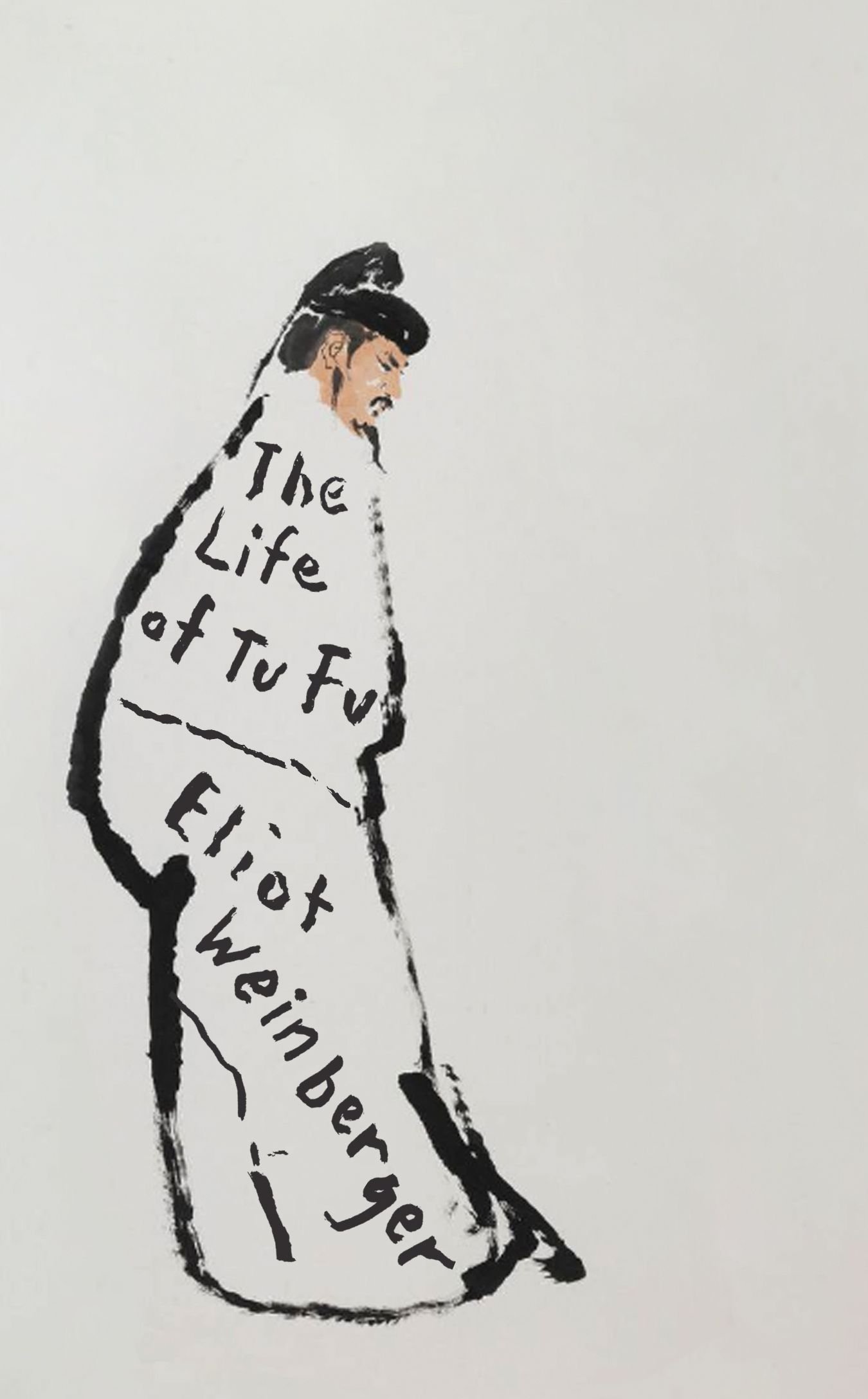Barrelhouse Reviews: The Life of Tu Fu by Eliot Weinberger
Reviewed by Eric Bies
New Directions / April 2024 / 64 pp
We know from the poetry of Tu Fu that the man, who lived in eighth century China, was a wanderer and a drinker. That he detested life at the imperial court seems a fact of nature rather than an incidental feature of his character. That he failed, twice, to pass the civil service exam needs no explanation. He did not enjoy his hamstrung status—who would?—but the fact that he embarked on a life of peripatetic vagrancy is as fitting, in hindsight, as any path taken in the life of a poet. We nod knowingly when we hear that he drank and slept on friends’ couches, or that when there was paper and ink he wrote poems. And while legend tells us he died of a binge worthy of Dylan Thomas, scholars say he simply suffered from untreated diabetes. However romantically charged by legend-makers, and whatever the specifics, certainly he lived a hard life. Coleridge may have remarked in a letter to Southey that unhappiness makes for damned bad verses, but Tu Fu’s blues have reliably proved an exception. Vacillating between bitterness and humility, melancholy and a quiet awe, his poems continue to cut across the centuries with nimble ease.
In his new book, The Life of Tu Fu, Eliot Weinberger presents a series of fifty-eight poems written in the spirit of the Tang dynasty poet. Not a work of translation, the book is also not, incidentally, a vita in any obvious sense. It’s neither the kind of thumbnail life turned out by the dozens at the tip of John Aubrey’s quill, nor is it one of those grand, sweeping, full-dress gestures we’ve come to expect since James Boswell. It might be tempting to think of the book as an essay. Weinberger himself, who, for more than four decades, has energetically translated, edited, and campaigned for an increase in Western appreciation for Chinese poetry, calls it “a fictional autobiography,” yet that isn’t quite right either. “Auto” does get us part of the way: The Life of Tu Fu is, in fact, an uncanny act of literary ventriloquism. More precisely, it’s a timely work of fruitful imitation. As a note to the text reveals, these poems are essentially pandemic poems, composed from the vantage of a destabilized world—a world not unlike Tu Fu’s own.
What’s curious about the book straight away is that almost nothing of biographical substance can be gleaned from it. Every poem arranges itself around the man, the poet, the father, the failure that was Tu Fu (the word “I” is, after “the,” the book’s second most frequent word); every poem is designed to convey Tu Fu’s experiences, observations, and reflections. But from the very first page the reader is plunged midstream into the poet’s life. Weinberger supplies no handrails to assist the reader, so those seeking basic details pertaining to birth, marriage, and death are bound for disappointment. Instead, Weinberger has constructed something like metempsychosis. His stylistic takeover is so decisive, his ambitions to verisimilitude so keen, that even the text’s occasional, specific “you” yields to the periscoping project of reproducing another’s mind in full. To read these poems is not to learn about an eighth-century man so much as it is to be an eighth-century man; what reads as a lack of identity or disclosure is really just the product of stepping all the way into his sandals.
Readers get to know, in short, the barest slice of what Tu Fu knew, and no more—but it turns out that this is plenty. In trekking about and looking through his eyes, we learn of loneliness and despair. We learn of the open road, of inhospitable villages, of war, with its bugles, conscripts, and corpses. Tu Fu was already in his forties when a rogue general, An Lushan, sparked a rebellion and sacked the Eastern Capital. Nearly a decade of violence and famine followed, leaving millions maimed, killed, or grieving the loss of life as much as the loss of a way of living it. It’s these years, the worst of times, that Weinberger’s book appears to chart. “They win and we lose,” he writes, “we lose and they win. / Vines wrap around the rotting bones. // She knows he won’t come back from the army, but patches / the clothes he left just in case.”
More than a millennium separates us from that tragedy, but when Weinberger dons the mask to give his own tattered account, real emotions register. And while mankind’s unrepentant ugliness rears its head in these pages with demoralizing regularity, so, to a lesser but no less meaningful extent, do quiet moments of solace in nature. One verse recalls the fantastic qualities of this distant civilization—“Chanting poems in the Hall of Gathering Kingfisher / Feathers, drinking in the Pavilion for Gazing at Clouds”—while another discharges what Tu Fu took to be such tiring customs—“Better to be with bamboo.” To remind us that the forest is never far off, beasts and birds make every appearance possible: crows, deer, geese, carp, swallows, cormorants, cuckoos, ducks, egrets, squirrels, even a dragon and a unicorn arrive to rescue an imperiled sensibility. Indeed, one of Weinberger’s achievements is to have packed so much of the marvelous natural world into such a slim and somber book.
Few books offer in so few words such a marvelously damning vision of humanity. The Life of Tu Fu is a sobering and laconic reminder that the mountain and the mosquito will be here long after we are gone.
Eric Bies is a high school English teacher. His writing has appeared in Rain Taxi, Open Letters Review, Exacting Clam, The Collidescope, and elsewhere.

